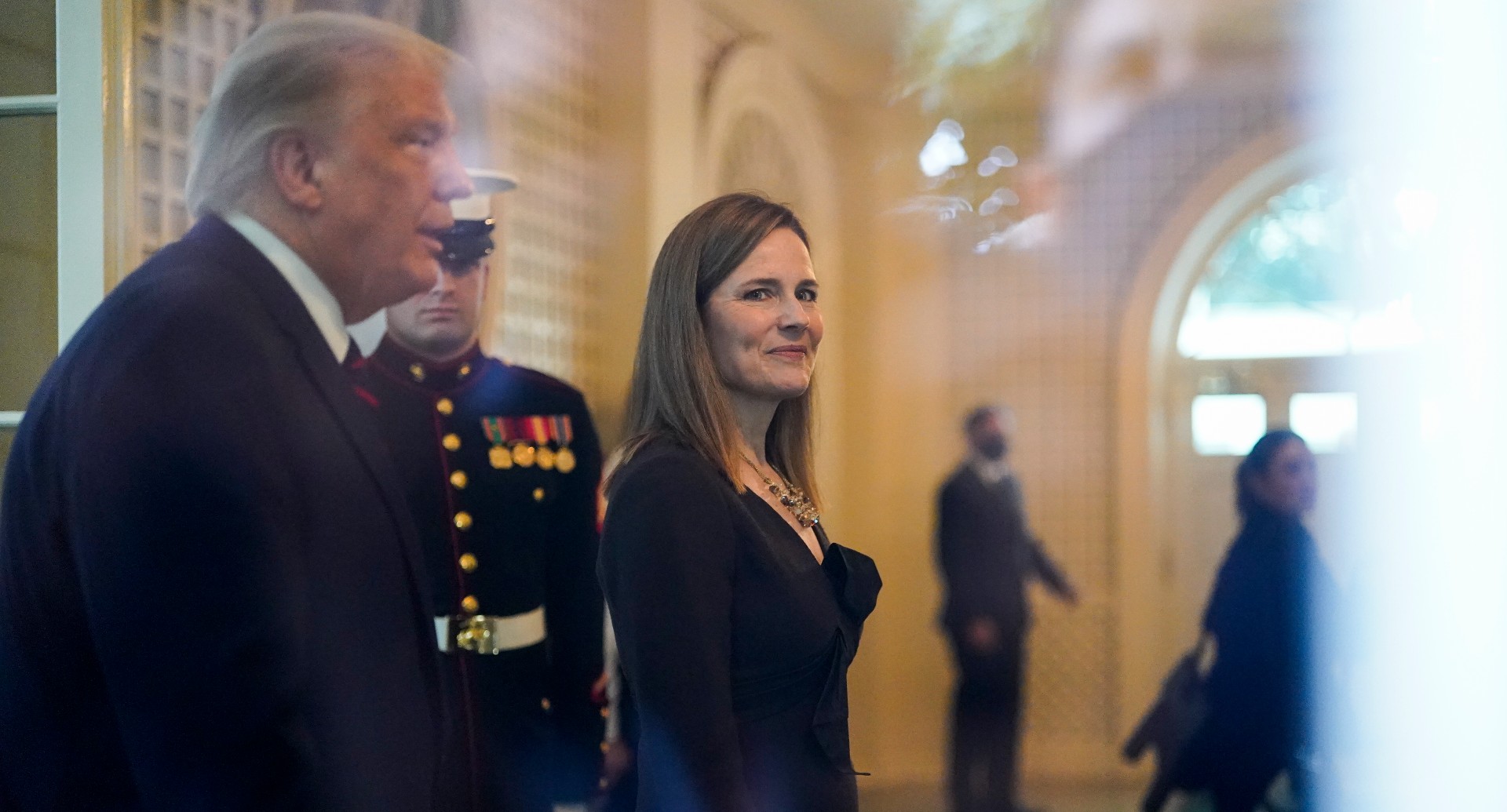OPINION: This article may contain commentary which reflects the author's opinion.
U.S. Supreme Court Justice Amy Coney Barrett stepped in and requested a response from an Illinois locality after gun rights advocates sued over a recently passed ban on certain firearms.
Last year, a city ordinance was passed in Naperville, Illinois, which is similar to an Illinois state law enacted this year that banned the sale and possession of particular semi-automatic rifles and magazines.
Barrett, who oversees appeals stemming from the U.S. Court of Appeals for the 7th Circuit, informed the Naperville officials that they have until noon on May 8th to respond.
The National Association for Gun Rights and National Foundation for Gun Rights argued the law conflicts with the high court’s NYSRPA v. Bruen decision last year, which ruled gun laws must align with constitutional text and history.
“We’re thankful the Supreme Court is taking the Second Amendment rights of Illinoisans seriously,” Dudley Brown, President of NAGR, told the Washington Examiner. “Any ban on so-called ‘assault weapons’ is plainly unconstitutional, and now it is on the city of Naperville to explain the legal justification for their ban. Of course, there isn’t any. The bans were ludicrous from the start, and if Illinois had any sense, they would wave the white flag now and save us all some time.”
“This is an exceedingly simple case. The Second Amendment protects arms that are commonly possessed by law-abiding citizens for lawful purposes, especially self-defense in the home,” the plaintiffs wrote in their emergency application.
“The arms banned by Respondents are possessed by millions of law-abiding citizens for lawful purposes, including self-defense in the home. Under this Court’s precedents, ‘that is all that is needed for citizens to have a right under the Second Amendment to keep such weapons’” the plaintiffs continued. “There cannot be the slightest question, therefore, that the challenged laws are unconstitutional.”
“The challenged laws are unconstitutional because ‘[w]hen the Second Amendment’s plain text covers an individual’s conduct, the Constitution presumptively protects that conduct.’ Plaintiffs desire to keep and bear for lawful purposes (including defense of their homes) the semi-automatic firearms and firearm magazines banned by the challenged laws,” they wrote.
As detailed by famed legal scholar Jonathan Turley, here’s another key question in Bevis v. Naperville and the State of Illinois:
Can the government ban the sale, purchase, and possession of certain semi-automatic firearms and firearm magazines tens of millions of which are possessed by law-abiding Americans for lawful purposes when there is no analogous historical ban as required in D.C. v. Heller (2008)…and New York State Rifle & Pistol Association v. Bruen (2022).
When Barrett was up for confirmation, I noted that the Second Amendment could prove one of her most interesting legacy areas of jurisprudence. Her dissent in Kanter v. Barr as an appellate judge was a powerful defense of Second Amendment rights. Rickey Kanter was convicted of one count of felony mail fraud for defrauding Medicare in connection with therapeutic shoe inserts. Focusing on the “history and tradition” of such restrictions, Barrett also took on the voting rights and jury service point with a key distinction:
“The problem with this argument is that virtue exclusions are associated with civic rights—individual rights that “require[ ] citizens to act in a collective manner for distinctly public purposes.” For example, the right to vote is held by individuals, but they do not exercise it solely for their own sake; rather, they cast votes as part of the collective enterprise of self-governance. Similarly, individuals do not serve on juries for their own sake, but as part of the collective enterprise of administering justice.
Turley continued in his report:
Heller, however, expressly rejects the argument that the Second Amendment protects a purely civic right. Moore v. Madigan, 702 F.3d 933, 935 (7th Cir. 2012). It squarely holds that “the Second Amendment confer[s] an individual right to keep and bear arms,” Heller, 554 U.S. at 595, 128 S.Ct. 2783 (emphasis added), and it emphasizes that the Second Amendment is rooted in the individual’s right to defend himself—not in his right to serve in a well-regulated militia, id. at 582–86, 128 S.Ct. 2783.”
In this case, we are dealing with a direct ban on certain weapons that are loosely characterized as “assault weapons.”
I have previously raised doubts over some of these laws, which are based on questionable factual claims and distinctions between weapons. Indeed, President Biden has made dubious constitutional and historical claims about the Second Amendment and AR-15s.
Turley rounded out his piece by noting that the U.S. Supreme Court may be inching toward a new review of Second Amendment claims and could deliver “historical decisions” in the near future.
